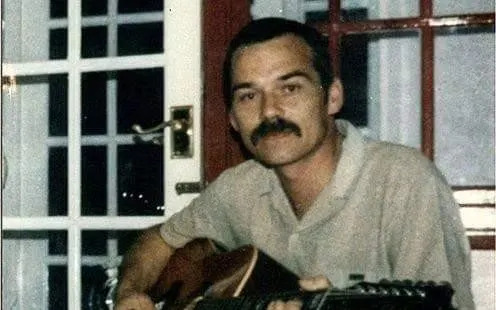Escaped terror suspect Daniel Khalife arrested in Chiswick
Adam Forrest, Kate Devlin and Matt Mathers
Fri, 15 September 2023
Rishi Sunak’s government has revealed that 80 prison officers had failed to show up for work at HMP Wandsworth on the day terror suspect Daniel Khalife allegedly escaped from the jail.
Nearly 40 per cent of the prison’s staff did not attend their “expected shift”, a Tory minister admitted – but he claimed that initial investigations had suggested that staff shortages were not a factor in the apparent security breach.
Experts said that stress, low pay, and a rise in violence and attacks on staff had led to a mental health crisis among officers. Labour said the “astonishing” rate of absence at Wandsworth showed that staffing problems were “making the public less safe”.
It comes after Khalife was charged with fleeing Wandsworth on 6 September by strapping himself to the underside of a food lorry. The 21-year-old was arrested four days later beside a west London canal after being pulled off a bike by a counterterrorism officer.
On Friday, Keith Bristow, a former director general of the National Crime Agency, was appointed to investigate the incident. He will look at what access Khalife had to certain materials while in prison, as well as staffing levels and security measures.
The investigation will also look at whether Khalife had “inside help” with his alleged escape, a possibility first revealed by The Independent last Thursday.
The revelation about prison staff absences came in response to a parliamentary question submitted by Labour. Prisons minister Damian Hinds said that only 61 per cent of Wandsworth’s officers had attended work as expected on the day of the alleged escape.
The minister insisted this was an “acceptable” level, adding: “All staff in both the kitchen and the gatehouse were on duty on 6 September. An initial investigation into Daniel Khalife’s escape did not find the staffing level to be a contributing factor.”
But Charlie Taylor, the chief inspector of prisons, argued that “the single biggest problem that faces Wandsworth is a lack of staff”. His 2021 report found that 30 per cent of Wandsworth officers were either off sick or had failed to turn up at the time of the inspection.
Mr Taylor said many officers across England struggled with mental health issues, with some off work because of assaults by inmates. The inspector said that an increase in prison violence had created a “vicious cycle”, in which staff stayed at home, leaving a reduced number of staff on hand to deal with or prevent violent incidents.

Khalife allegedly escaped from Wandsworth by strapping himself to the underside of a food delivery vehicle (PA)
Mr Taylor told The Independent that prison officers “face high levels of stress and at times violence in their work”. He added: “In far too many prisons that we inspect, we raise concerns about a shortage, and the relative inexperience, of frontline officers.”
The chief inspector said his team had issued an urgent notification for improvement at high-security prison HMP Woodhill last month, where only half of the more experienced “band 3” officers were available for duty.
Mr Taylor said staff shortages are an ongoing issue in many prisons, including Birmingham, Swaleside, Stocken, Elmley and others. His team’s most recent report on HMP Mount in Hertfordshire also found a 40 per cent shortfall in staff availability.
Andrea Albert, president of the Prison Governors’ Association, admitted that there is a “recruitment and retention problem”, which she said is due to a rise in violence, stress, low pay, and “poor” development opportunities.
“We do have, across some of our prisons, high levels of staff sickness; we do have wellbeing issues. It is a very stressful environment,” she told BBC Radio 4’s The World at One. “I would probably say that in some of our prisons, it does border on being quite dangerous. There are prisons that are running with similar staffing levels to Wandsworth, so they’re running with maybe 30 per cent to 40 per cent reduction in staff on a daily basis.”
But Ms Albert added that some prisons are over-recruiting, so staff can be sent to “places like Wandsworth” to bolster numbers.

Vehicle searched by police during their hunt for Daniel Khalife (PA)
Ministry of Justice sources said that the 80 absences included some annual leave, maternity leave and training, so were not all down to officers calling in sick or unauthorised absences.
But Labour’s Rosena Allin-Khan, the MP for Wandsworth, who asked about staffing, said it “beggars belief” that almost 40 per cent unavailability is considered acceptable.
She told The Independent: “When I visited Wandsworth prison a few months ago, the biggest issue they were facing were staff shortages ... just six officers turned up for a shift one night in December. The government chose to ignore my concerns.”

Daniel Khalife at Westminster Magistrates’ Court on Monday (PA)
Labour’s Shabana Mahmood, the shadow justice secretary, said the “astonishing” fact that almost 40 per cent of staff did not turn up “makes it clear that the dire conditions at the prison are having wide-ranging implications”.
She added: “Morale amongst staff is in the depths of despair, and the rate of loss of experienced staff is frankly alarming.”
Mr Sunak said it would be “premature” to talk about the “specific incidents” until an independent investigation had established the facts. He would not be drawn on whether the level of absenteeism was acceptable, but urged “people to turn up [to work] wherever they work”.
Analysis by The Independent published this week shows that some 60 per cent of officers across UK prisons had more than 10 years of experience in 2017 – but that figure had plunged to around 30 per cent by June this year.
The prison officers’ union, the POA, cited government cuts as a factor in reduced staffing levels. Spokesperson Mick Pimblett said the Wandsworth staffing figures were “quite disturbing”, but added that there is “not a lot of difference in many establishments across England and Wales”.
The union chief said staff don’t take overtime “due to burnout and the very fact that these are dangerous and stressful places to work”.
Mr Hinds insisted that the government had brought in 4,000 more prison officers since March 2017, adding: “We are also recruiting 5,000 prison officers across public and private prisons by the mid-2020s.”














